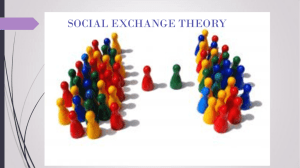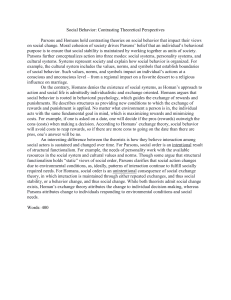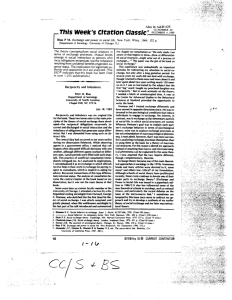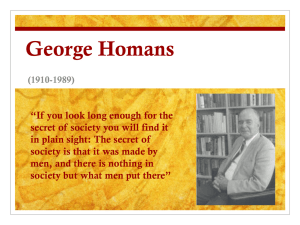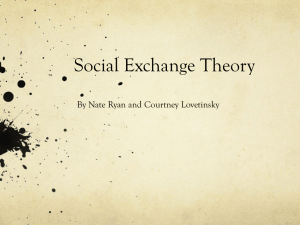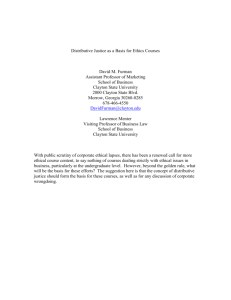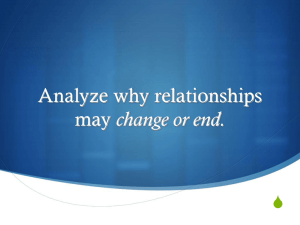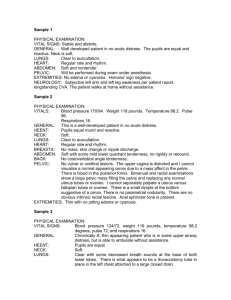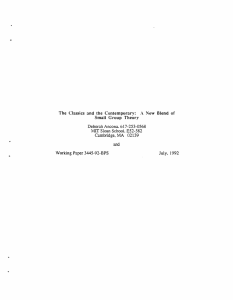Reward - Cost = Profit Social Behavior as Exchange
advertisement
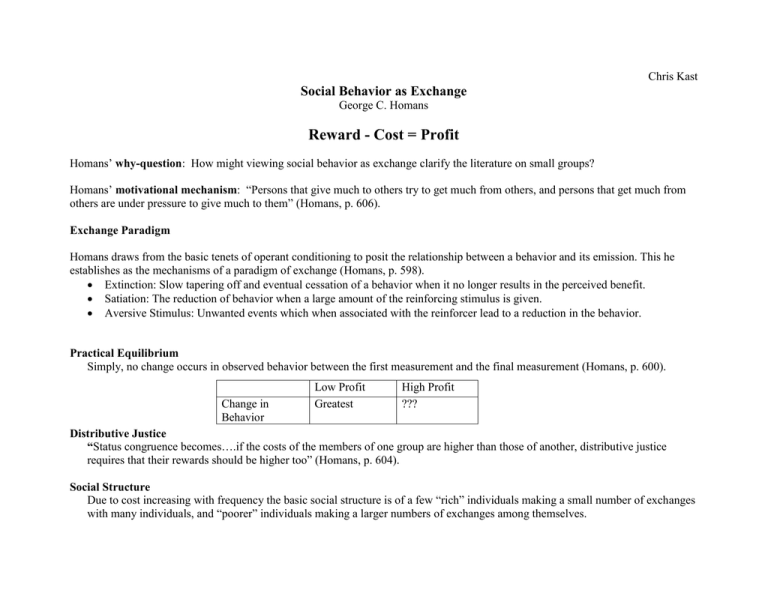
Chris Kast Social Behavior as Exchange George C. Homans Reward - Cost = Profit Homans’ why-question: How might viewing social behavior as exchange clarify the literature on small groups? Homans’ motivational mechanism: “Persons that give much to others try to get much from others, and persons that get much from others are under pressure to give much to them” (Homans, p. 606). Exchange Paradigm Homans draws from the basic tenets of operant conditioning to posit the relationship between a behavior and its emission. This he establishes as the mechanisms of a paradigm of exchange (Homans, p. 598). Extinction: Slow tapering off and eventual cessation of a behavior when it no longer results in the perceived benefit. Satiation: The reduction of behavior when a large amount of the reinforcing stimulus is given. Aversive Stimulus: Unwanted events which when associated with the reinforcer lead to a reduction in the behavior. Practical Equilibrium Simply, no change occurs in observed behavior between the first measurement and the final measurement (Homans, p. 600). Change in Behavior Low Profit Greatest High Profit ??? Distributive Justice “Status congruence becomes….if the costs of the members of one group are higher than those of another, distributive justice requires that their rewards should be higher too” (Homans, p. 604). Social Structure Due to cost increasing with frequency the basic social structure is of a few “rich” individuals making a small number of exchanges with many individuals, and “poorer” individuals making a larger numbers of exchanges among themselves.
